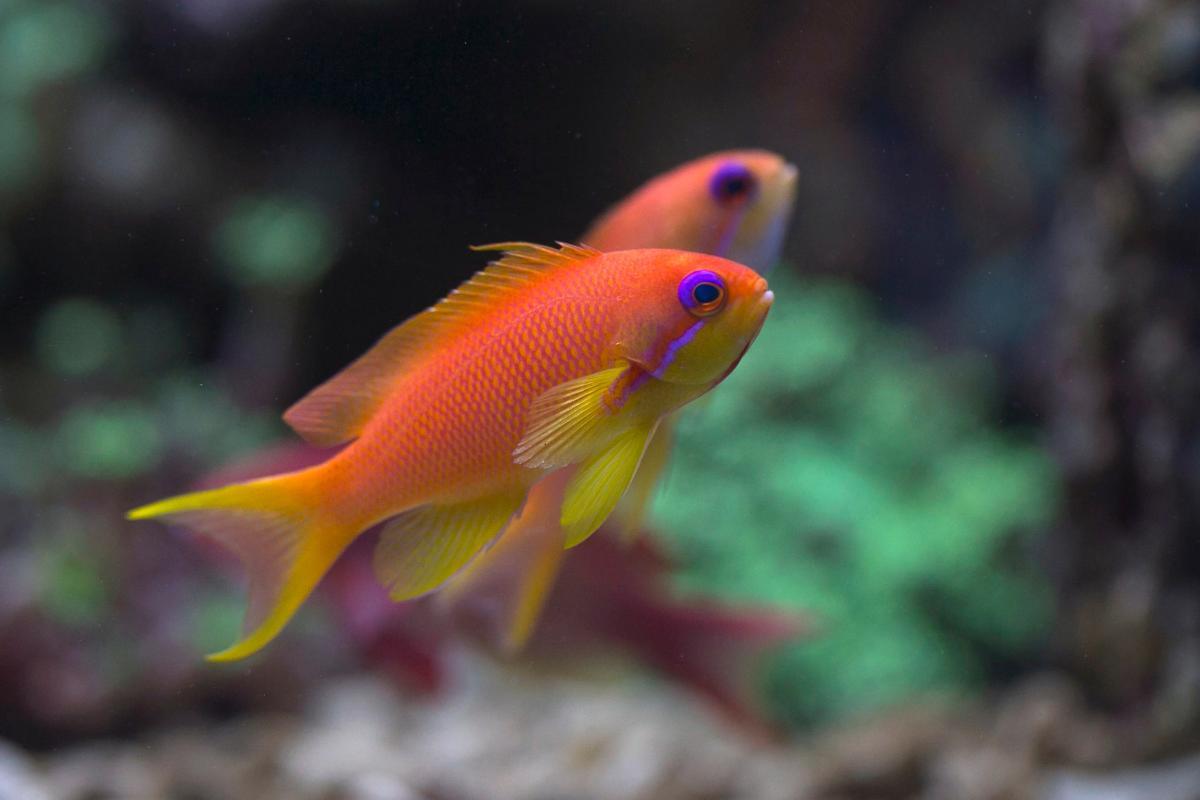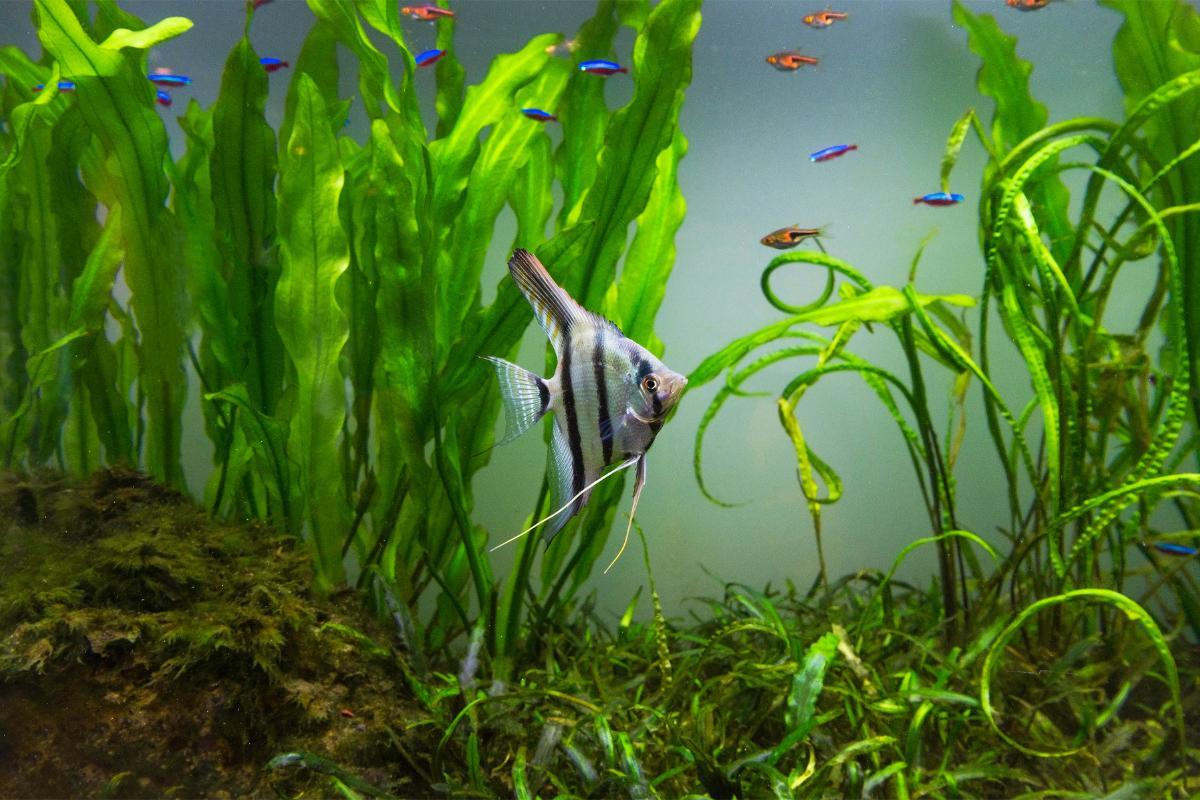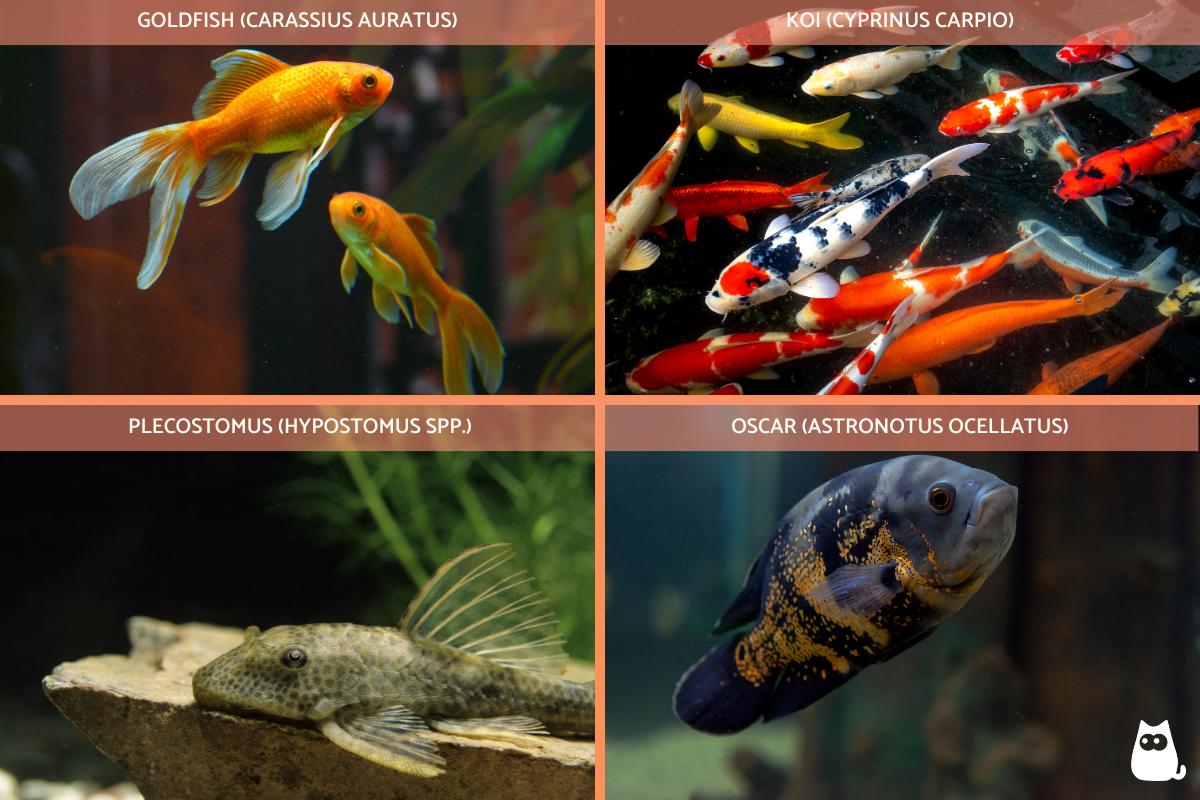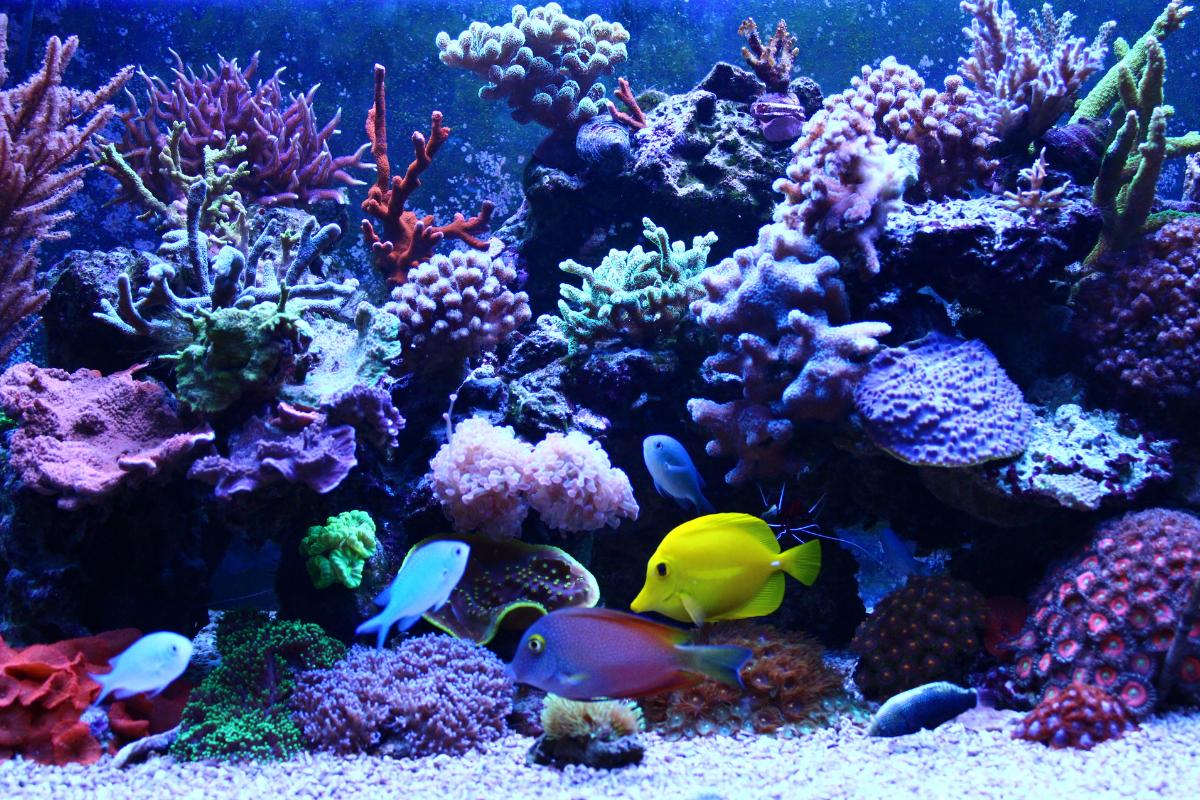How Long Do Aquarium Fish Live?


When setting up an aquarium, one of the most important considerations for any fish keeper is how long their fish will live. While it’s often assumed that fish have short lifespans, the reality is that many species can live for years—sometimes even decades, when given the right care. While wild fish face predators, changing environments, and food scarcity, captive fish encounter their own unique challenges that affect how long they'll swim in your tank.
In this AnimalWised article, we’ll explore how long fish can live in aquariums, the typical lifespans of popular aquarium fish species, and most importantly, highlight the key factors that can either extend or shorten your fish’s life.
Factors that affect fish lifespan in an aquarium or fish tank
The lifespan of a fish is not just determined by its species, it is shaped by its environment, genetics, and overall well-being. While some fish are naturally long-lived, others may struggle to reach their full potential due to stress, poor conditions, or health complications. Understanding these factors can help ensure that fish live to the upper end of their expected lifespan.
Species and natural longevity:
Not all fish are built to live long lives. Some species, like bettas or small schooling fish, have relatively short lifespans of 2-5 years, while others, like goldfish or certain cichlids, can live for decades.
Larger fish and those that grow slowly tend to live longer, whereas small, fast-maturing species often have shorter lives. When choosing fish, it’s essential to consider how long they typically live and whether their needs can be met for the duration of their life.
Water quality:
Water quality directly affects their health and longevity. Poor water conditions can cause chronic stress, leading to weakened immune systems, slower growth, and a greater risk of disease. Long-term exposure to ammonia, nitrites, or unstable pH levels can shorten a fish’s life by causing organ damage and respiratory distress.
Fish kept in stable, well-maintained water environments tend to live much longer than those exposed to fluctuating or polluted conditions.
Stress:
Stress is a silent killer in fish. A fish constantly exposed to stress will experience increased cortisol levels, which can weaken its immune system and speed up aging. Stressful factors include aggressive tank mates, sudden environmental changes, or even an overcrowded tank.
Chronic stress reduces a fish’s ability to fight off infections and can cause premature death. Ensuring a peaceful, stable environment helps fish live longer by reducing the biological toll of stress.
Genetics:
Genetics play a major role in fish longevity. Wild-type fish, which have not been selectively bred for extreme traits, often have stronger immune systems and longer lifespans.
On the other hand, many ornamental fish, such as fancy goldfish or balloon mollies, have been bred for specific physical features that can negatively impact their health. Selecting hardy, naturally shaped fish can lead to a longer and healthier life.
Did you know that most fish don't have eyelids but still need rest? Explore the surprising ways fish sleep in our detailed guide to underwater rest patterns.

Average lifespan of popular aquarium fish
As mentioned in the previous section, the lifespan of aquarium fish is highly variable, and it is influenced by factors like species, genetics, water quality, diet, and overall care. Therefore, there's no universal lifespan standard. However, understanding typical lifespans helps aquarists provide appropriate care.
Here are some common aquarium fish and their approximate lifespans:
- Betta (Betta splendens): 2-5 years.
- Guppy (Poecilia reticulata): 1-2 years.
- Goldfish (Carassius auratus): 10-20+ years.
- Neon Tetra (Paracheirodon innesi): 5 years.
- Angelfish (Pterophyllum scalare): 8-10 years.
- Oscar (Astronotus ocellatus): 10-15+ years.
It is important to note that even within a species, individual fish may have varying lifespans. Ready to grow your aquatic family? Learn about the signs, duration, and care tips for expecting fish in our detailed guide to fish pregnancy.

Which aquarium fish has the longest lifespan?
As previously discussed, aquarium fish longevity is influenced by care quality. However, some species are naturally long-lived in captivity when provided with optimal conditions.
Here are some examples of long-lived aquarium fish:
- Goldfish (Carassius auratus): known for their longevity, goldfish can live far longer than 6-8 years. With proper care, including a spacious tank and excellent water quality, they often exceed 20 years, and some have lived over 40.
- Koi (Cyprinus carpio): while primarily pond fish, koi can thrive in very large aquariums. They are known to live for decades, often exceeding 25 years, and some individuals have lived much longer.
- Plecostomus (Hypostomus spp.): also known as "plecos," these catfish can live for 10-15+ years. Their role in algae control is beneficial, but their potential size should be considered.
- Oscar (Astronotus ocellatus): a popular and intelligent cichlid, Oscars can live 10-20 years with proper care. They require large tanks and strong filtration due to their high waste production.
Did you know that goldfish have unique requirements that make many common aquarium fish incompatible with them? Learn about the perfect companions for your goldfish in our detailed compatibility guide.

How to help your fish live longer
Keeping fish healthy and extending their lifespan requires consistent care and attention. By following these essential steps, you can create the best possible environment for your aquatic pets.
Keep the tank clean:
A clean tank is crucial for fish health. To prevent toxic buildup and keep water conditions stable:
- Perform weekly water changes of 20-30% to remove waste and replenish clean water.
- Use a gravel vacuum to clear out uneaten food and debris from the tank bottom.
- Clean the filter regularly, but don’t replace all media at once, as beneficial bacteria help maintain water balance.
- Test water parameters frequently to monitor pH, ammonia, nitrites, and nitrates.
Changing too much water at once can shock fish. Stick to small, regular water changes instead.
Feed the right amount of food:
Proper nutrition is essential for fish longevity. Follow these feeding guidelines:
- Offer small, high-quality meals 1-2 times daily.
- Use a varied diet that matches your fish’s natural feeding habits, include flakes, pellets, live, or frozen foods.
- Follow the 2-3 minute rule and only feed what they can eat in a few minutes to prevent water pollution.
Keep in mind that overfeeding can lead to obesity, bloated fish, and dirty water that shortens lifespan.
Keep the temperature and lighting consistent:
Fish thrive in stable conditions. To prevent stress and disease:
- Use a heater with a thermostat to keep the water temperature steady.
- Research your fish’s preferred temperature range and adjust accordingly.
- Provide a natural light cycle (8-12 hours of light daily) to maintain healthy behavior.
Placing a tank near windows can cause dangerous temperature swings and excessive algae growth.
Choose compatible tank mates:
Some fish do best in groups, while others prefer solitude. Before adding new fish, make sure to:
- Research compatibility to avoid aggression or territorial disputes.
- Ensure enough space, so fish are not crowded or stressed.
- Observe behavior after introducing new fish. If bullying occurs, separate aggressive fish.
Just because fish are sold together doesn’t mean they can live peacefully. Always check their compatibility first.
Prevent and treat diseases early:
Keeping fish healthy is easier than treating illness. Prevent diseases with these steps:
- Quarantine new fish for at least two weeks before adding them to your main tank.
- Look for early signs of illness, like lethargy, loss of appetite, or unusual swimming.
- Have essential medications ready for common conditions like ich or fin rot.
Waiting too long to treat sick fish can lead to outbreaks in the entire tank. Act fast at the first sign of illness.
Did you know that changes in color, swimming patterns, or appetite could indicate your fish is unwell? Discover all the vital signs to monitor in our detailed fish health guide.

If you want to read similar articles to How Long Do Aquarium Fish Live?, we recommend you visit our Basic care category.
- Rees, B. (2021). Fish welfare in public aquariums and zoological collections. Journal of Zoo and Wildlife Medicine, 52(4), 736–748. https://doi.org/10.1638/2019-0092
- Ellis, M., & Farlow, P. (2020). Psychological and social well-being of bony fishes in zoos and aquariums. Zoo Biology, 39(5), 420-429. https://doi.org/10.1002/zoo.21729
- Maly, M., & Kocour, M. (2015). Comments on the extremes in longevity in fishes, with special reference to the Gobiidae. Aquatic Ecology, 49(4), 415-423. https://doi.org/10.1007/s10452-015-9533-5
- Smith, J. R., & Almodóvar, A. (2017). Global challenges in freshwater-fish conservation related to public aquariums and the aquarium industry. Aquatic Conservation: Marine and Freshwater Ecosystems, 27(5), 987–1003. https://doi.org/10.1002/aqc.2862









